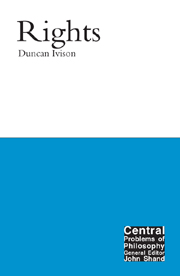5 - Recognition
Summary
I was in bondage in Missouri, too. I can't say that my treatment was bad. In one respect I say it was not bad, but in another I consider it as bad as could be. I was a slave. That covers it all. I had not the rights of man.
(Benjamin Miller, former slave, quoted in Darby 2006: 430)Introduction
So far we have been concentrating on theories of rights that are closely aligned to the notion of law, which is not unsurprising. Right and law are indeed closely related. But there are different modes of juridical thought. We have been exploring some of these differences in our discussion of Grotius, Hobbes, Pufendorf, Locke and Kant. The differences between these philosophers are as significant, I think, as their shared commitment to the centrality of law to the language of rights, and to politics more generally. I also noted that civic humanism and republicanism (especially the neo-Roman conceptions of freedom) offered an alternative set of frameworks within which to make sense of rights, or even to displace them in favour of an emphasis on civic virtue. In this chapter we turn to yet another approach to rights, this time embodied in the philosophy of Hegel. Why read Hegel on rights? Well, for one thing, he is an important source for an influential set of critiques of modern liberalism that take aim at the centrality of individual rights (and the social contract) in their accounts of state, society and the self.
- Type
- Chapter
- Information
- Rights , pp. 128 - 153Publisher: Acumen PublishingPrint publication year: 2007



